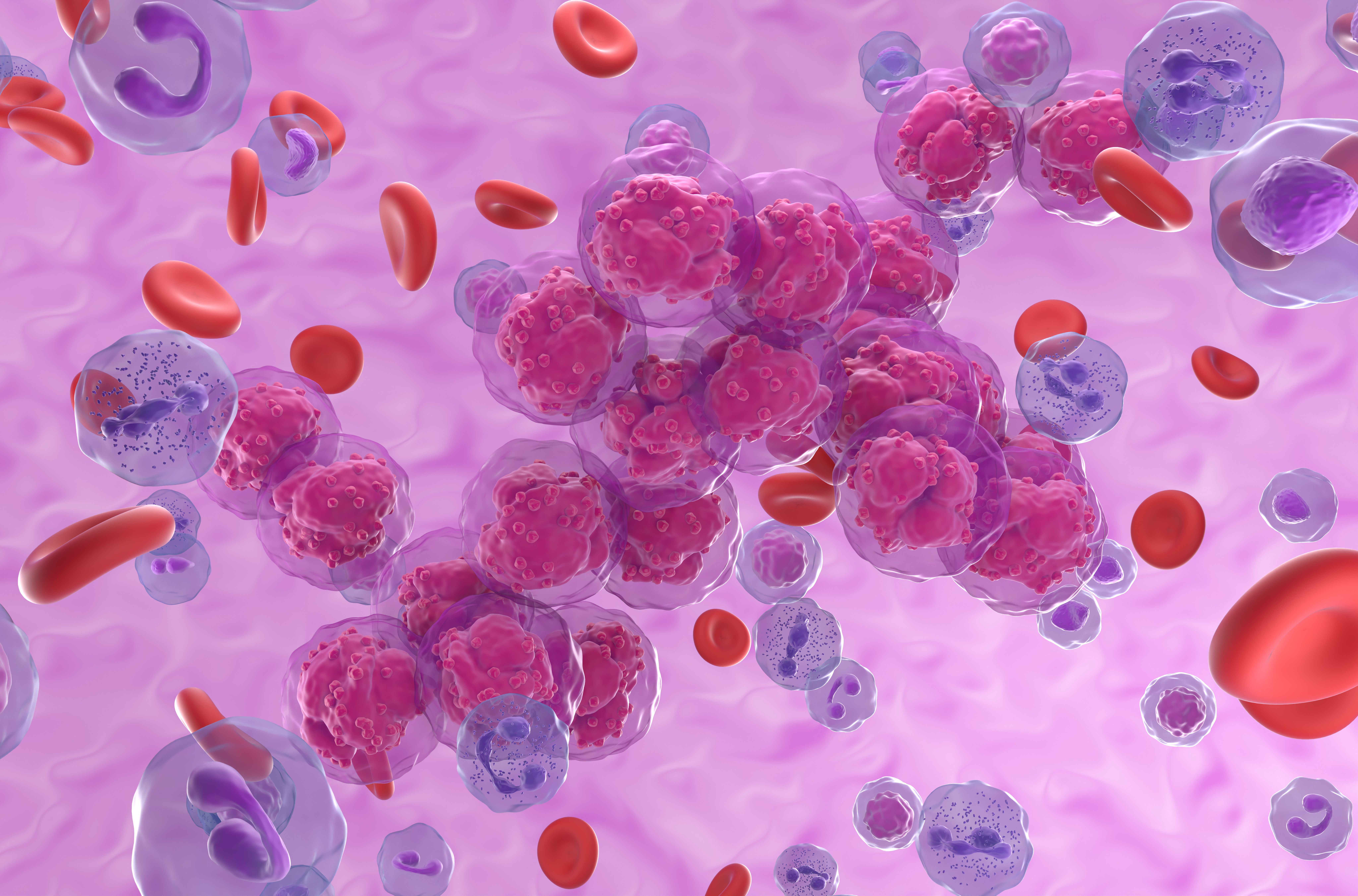Article
FDA Gives Full Approval to Supplemental Biologics License for Blinatumomab for B-Acute Lymphoblastic Leukemia
Author(s):
The approval was based on data from 2 studies of blinatumomab in adults and pediatric patients with CD19-positive B-cell precursor acute lymphoblastic leukemia.
The FDA has granted full approval to a supplemental biologics license application for blinatumomab (Blincyto; Amgen) for the treatment of adult and pediatric patients with CD19-positive B-cell precursor acute lymphoblastic leukemia (B-ALL) in the first or second complete remission with minimal residual disease (MRD) at 0.1% or greater.1
ASZLO - stock.adobe.com

The approval was based on data from 2 phase 3 studies, which changed the drug’s accelerated approval to a full approval.1
"We are pleased the FDA has granted full approval for [blinatumomab], the first FDA-approved CD19-directed CD3 T-cell engager [bispecific T-cell engager] immunotherapy and the first to be FDA-approved for MRD in 2018," said David Reese, MD, executive vice president of Research and Development at Amgen, in a statement. "Today's full approval underscores the clinical benefit of [blinatumomab] for [those] living with B-ALL, and we look forward to exploring how we can continue to make a significant impact for these patients."1
The company continues to investigate blinatumomab, including for individuals with MRD-negative B-ALL, to minimize chemotherapy, and a subcutaneous formulation. Investigators aim to address remaining unmet needs for these patients.1
In the TOWER study (NCT02013167), investigators compared blinatumomab to the standard of care chemotherapy. There were 405 individuals randomized 2:1 to receive blinatumomab or the standard of care. The investigators found that among 271 individuals randomized in the blinatumomab arm, 267 received blinatumomab.2
The results demonstrated a statistically significant improvement in overall survival for individuals treated with blinatumomab compared to the standard of care chemotherapy.2
In another phase III study (NCT02101853), investigators included 208 individuals aged 1 to 30 years who received 1 month of induction chemotherapy. According to the results, blinatumomab showed superiority to the standard chemotherapy as post-reinduction consolation prior to hematopoietic stem cell transplant.3
"In a phase II study, roughly 80% of adult patients treated with blinatumomab experienced a complete MRD response," Elias Jabbour, MD, Department of Leukemia’s Division of Cancer Medicine at The University of Texas MD Anderson Cancer Center in Houston, said in the statement. "The FDA's decision to grant a full approval for blinatumomab further validates the use of this therapy to treat adults and children with B-cell precursor ALL with MRD present following a remission, which is a strong predictor of relapse in this patient population."1
Blinatumomab was granted breakthrough and priority review by the FDA. It is also currently approved in the United States for the treatment of relapsed or refractory CD19-positive B-ALL in adults and pediatric individuals.1
Additionally, in the European Union, blinatumomab is indicated as a monotherapy for adults with Philadelphia chromosome-negative CD19 positive relapsed or refractory B-ALL, adults with Philadelphia chromosome-negative CD19 positive B-ALL in the first or second complete remission with MRD at 0.1% or greater, and pediatric individuals aged 1 year and older with Philadelphia chromosome negative CD19 positive B-ALL, which is refractory or in relapse after receiving at least 2 prior therapies or in relapse after receiving prior allogeneic hematopoietic stem cell transplantation.1
References
- FDA grants full approval for Blincyto (blinatumomab) to treat minimal residual disease-positive b-cell precursor acute lymphoblastic leukemia. News release. Amgen. June 21, 2023. Accessed June 22, 2023. https://www.amgen.com/newsroom/press-releases/2023/06/fda-grants-full-approval-for-blincyto-blinatumomab-to-treat-minimal-residual-diseasepositive-bcell-precursor-acute-lymphoblastic-leukemia
- Blincyto (blinatumomab). Prescribing Information. FDA. Accessed June 22, 2023. https://www.accessdata.fda.gov/drugsatfda_docs/label/2018/125557s013lbl.pdf
- Barrett J. Blinatumomab versus chemotherapy in relapsed B-acute lymphoblastic leukemia. Pharmacy Times. December 10, 2019. Accessed June 22, 2023. https://www.pharmacytimes.com/view/blinatumomab-versus-chemotherapy-in-relapsed-b-acute-lymphoblastic-leukemia
Newsletter
Stay informed on drug updates, treatment guidelines, and pharmacy practice trends—subscribe to Pharmacy Times for weekly clinical insights.






